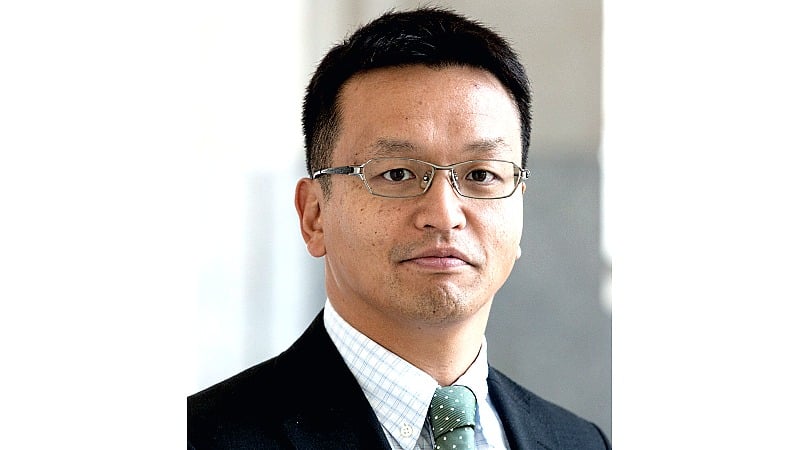
The Seventh Session of the 14th Supreme People’s Assembly of the Democratic People’s Republic of Korea was held on September 8 in Pyongyang.
During this session, General Secretary Kim Jong-un made a speech entitled “For the infinite prosperity of our great nation,” and a statement on the “Nuclear Force Policy of the Democratic People’s Republic of Korea” was adopted.
The last time a new nuclear doctrine was presented was nine years ago in 2013.
The announcement of a hardline policy at this time is intended to serve as an alternative to conducting a nuclear test.
Preparations for a nuclear test are thought to have been in the final phase for some months.
However, with the 20th National Congress of the Chinese Communist Party due to be held in October, North Korea must now be seen by the Xi Jinping administration to be exercising restraint.
While Beijing turns a blind eye to Pyongyang’s missile tests, it has clearly expressed its opposition to the development and testing of nuclear weapons.
Kim Jong-un is therefore likely to refrain from actions that would result in a loss of face for President Xi Jinping, at least until the Congress is over. Instead, he delivered a strongly worded speech.
Worthy of note is the fact that the new policy stipulated that Kim Jong-un alone has the authority to decide on any matter involving nuclear weapons, and that the conditions for deploying nuclear weapons are “in the event of a nuclear or non-nuclear attack by hostile forces on the state’s leadership and nuclear command system, or the imminent threat of such an attack.”
This makes it clear that North Korea may deploy nuclear weapons based on its own arbitrary interpretation of the policy, even in the absence of an attack launched by the United States and South Korea.
On the other hand, the policy asserts that “[North Korea] shall neither threaten non-nuclear states with its nuclear weapons nor use nuclear weapons” against them unless they collude with other nuclear states in the aggression or attack against North Korea.
The aim is to decouple the United States and South Korea by winning over the South Korean progressives who seek to distance themselves from the United States.
Kim Jong-un applauded the new policy saying, “[the adoption of the new policy] is a noteworthy event that proclaims to the nation and the rest of the world that we have lawfully secured a deterrent against war as a means of defending the state.”
Theorizing the necessity of nuclear development and demonstrating a strong stance on the issue was motivated by a desire to keep the “decapitation operation” against Kim Jong-un in check while at the same time creating a greater sense of unity among the people in the face of economic hardship.
With Pyongyang’s repeated assertions that North Korea needs nuclear weapons to protect itself from the United States, which it relentlessly denounces as an “evil empire,” it is hard to believe that bilateral summit talks were held three years ago.
On the other hand, Kim Jong-un stated, “If we are to change our nuclear policy, the world must change, including the political and military environment on the Korean Peninsula.”
While it has no intention of taking the lead in relinquishing its nuclear arsenal, North Korea stops short of refusing to negotiate with the United States, instead taking the stance that Washington should be the one to make concessions.
Kim Jong-un’s assertion that the “primary revolutionary task” is “giving top priority and importance to boosting military capability” also drew attention.
In the spring of 2013, Kim Jong-un touted the “new parallel pursuit (Byungjin)” of economic construction and nuclear weapons development, which was unilaterally dropped in April 2018 prior to the US-North Korea summit in Singapore and replaced with “concentrating all our efforts on socialist economic construction.”
However, the uncompromising stance, suggesting as it does a return to the “military first (Songun)” of the Kim Jong-il era, makes it clear that North Korea will place greater emphasis on the military than was the case under the “new parallel pursuit.”
Kim Jong-un’s speech covered various fields, with the emphasis in terms of economic construction on the need to “improve the lives of the people including addressing the problems of food and consumer goods.”
However, economic sanctions must be eased if Pyongyang is serious about achieving this goal.
Although the government’s hardline stance will make life difficult for people in the short term, its policy in the medium to long term remains unchanged: to wait for the appropriate moment to resume negotiations with Washington.
For many years, Kim Jong-un has condemned what he refers to as the “disease” of imports, calling for economic construction through “self-sufficiency” and “self-reliance” that does not rely on trade.
Now, he has demonstrated a flexible and pragmatic stance on medical supplies, declaring that “nothing should stand in the way of providing these, even if it means importing them.”
The North Korean leader also outlined for the first time a policy for the “responsible administration of vaccines.”
An early resumption of China-North Korea trade in medical supplies and other essential goods is anticipated.
(Atsuhito Isozaki is Professor at Keio University, Japan.)
ADVERTISEMENT
ADVERTISEMENT







































